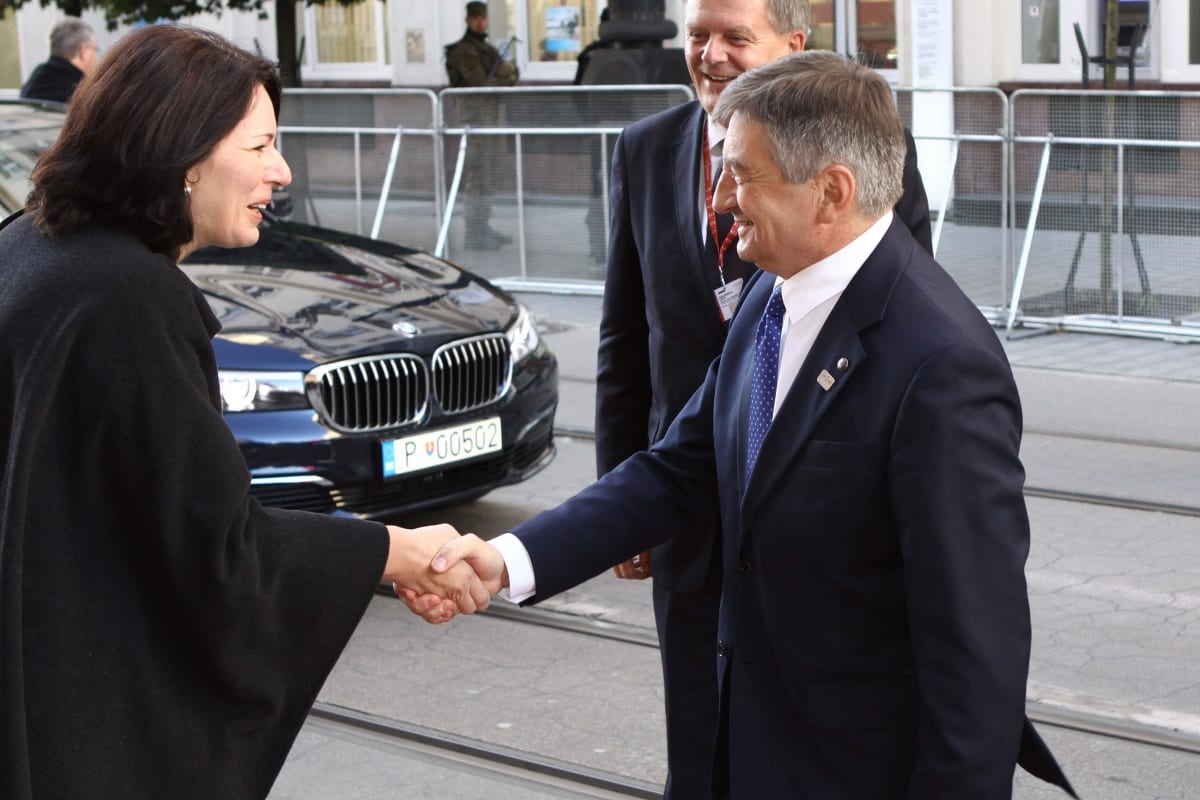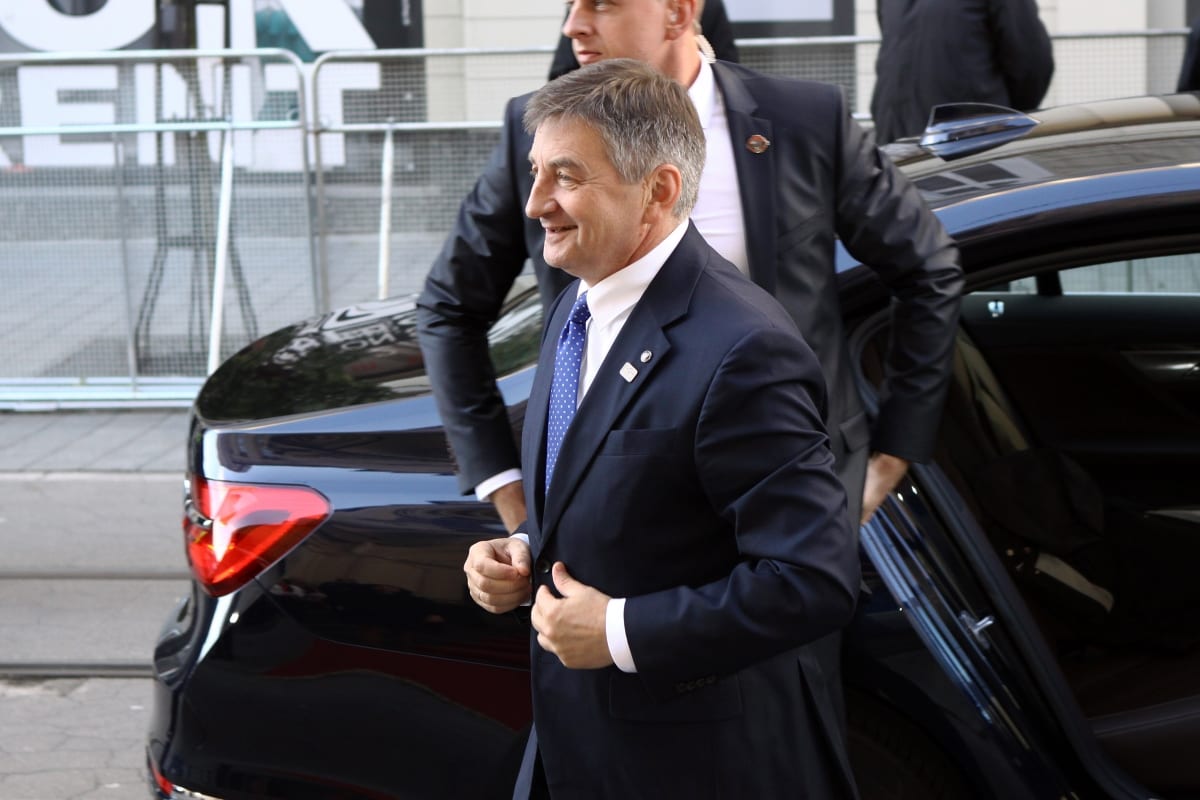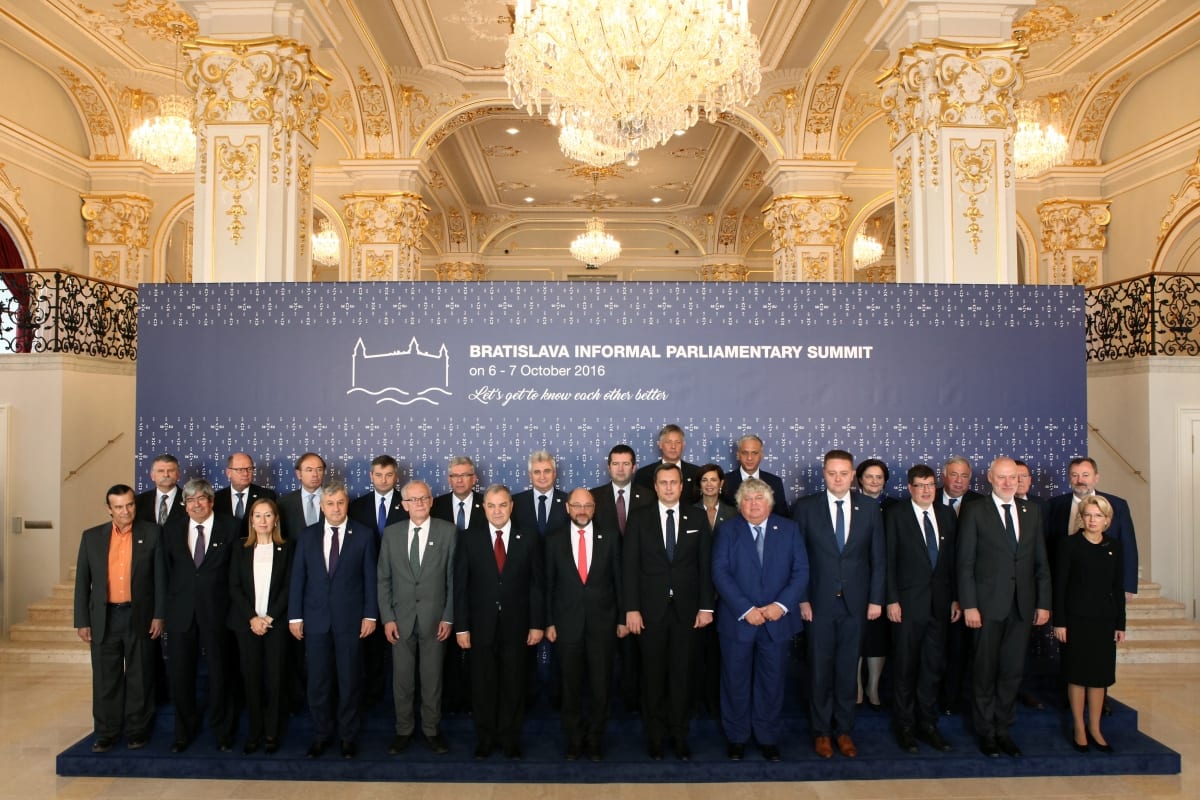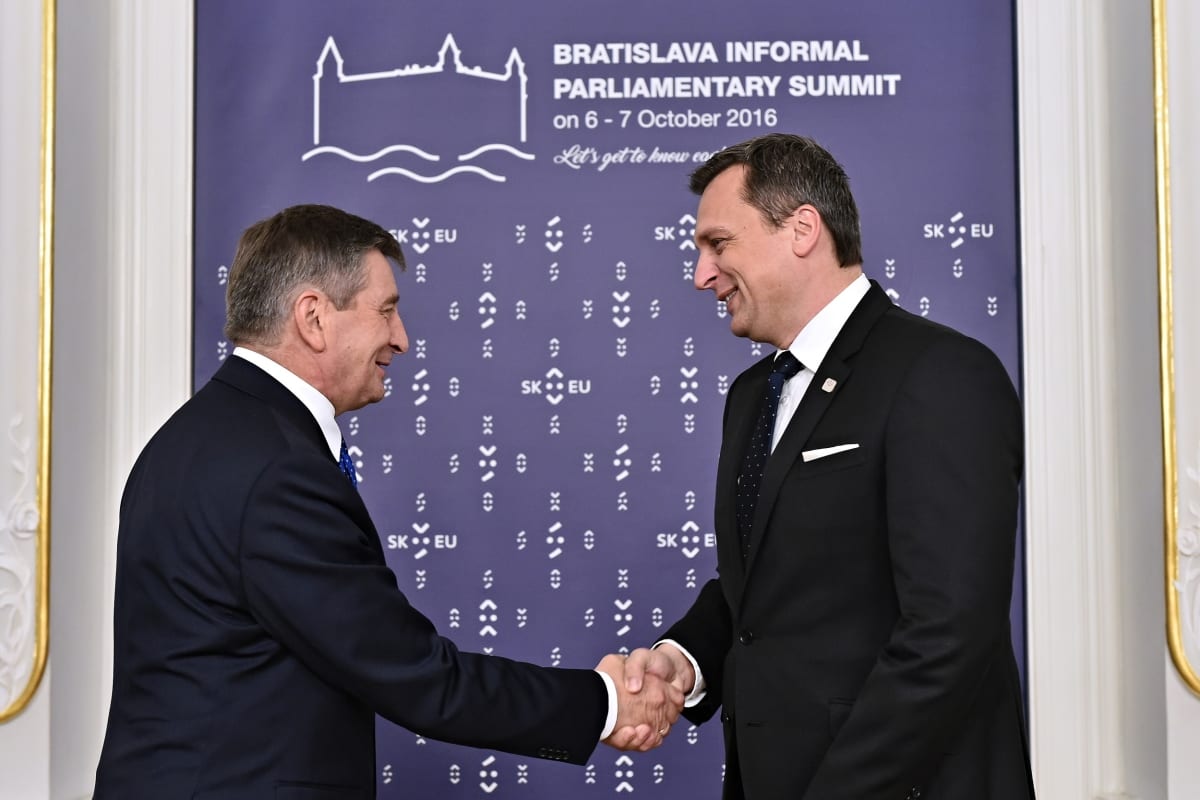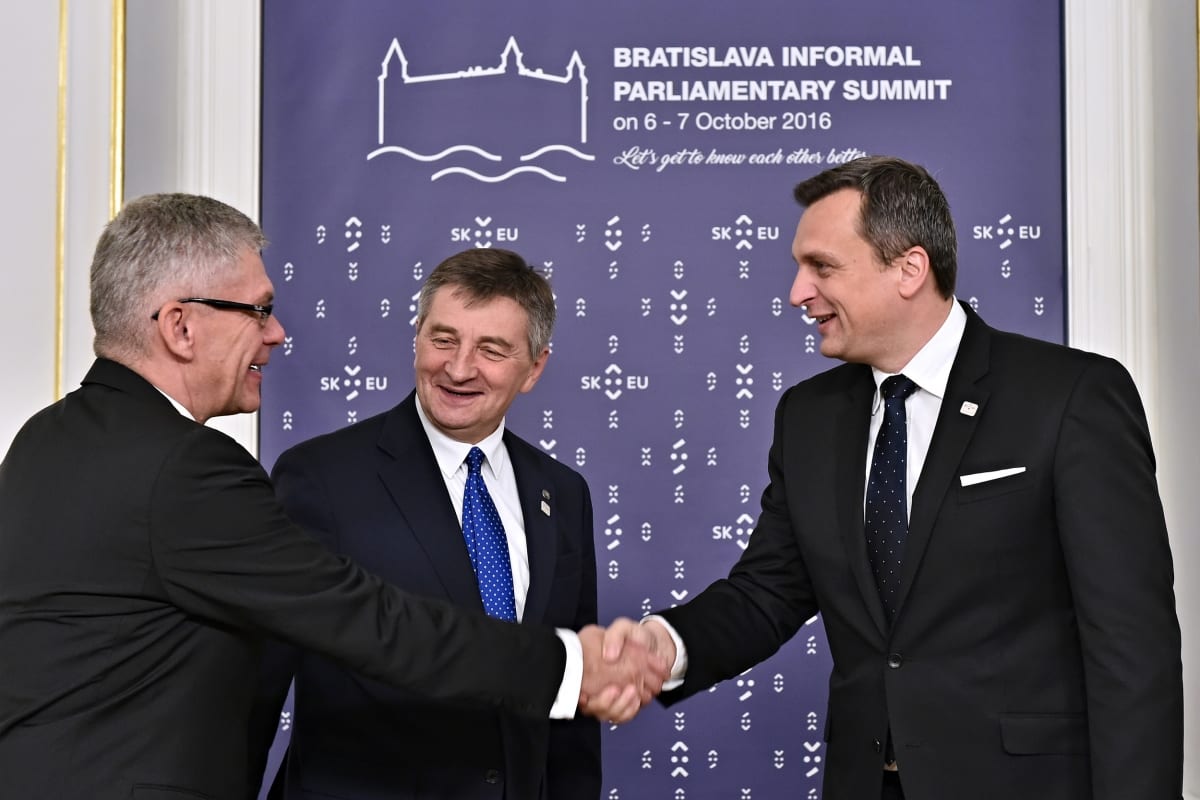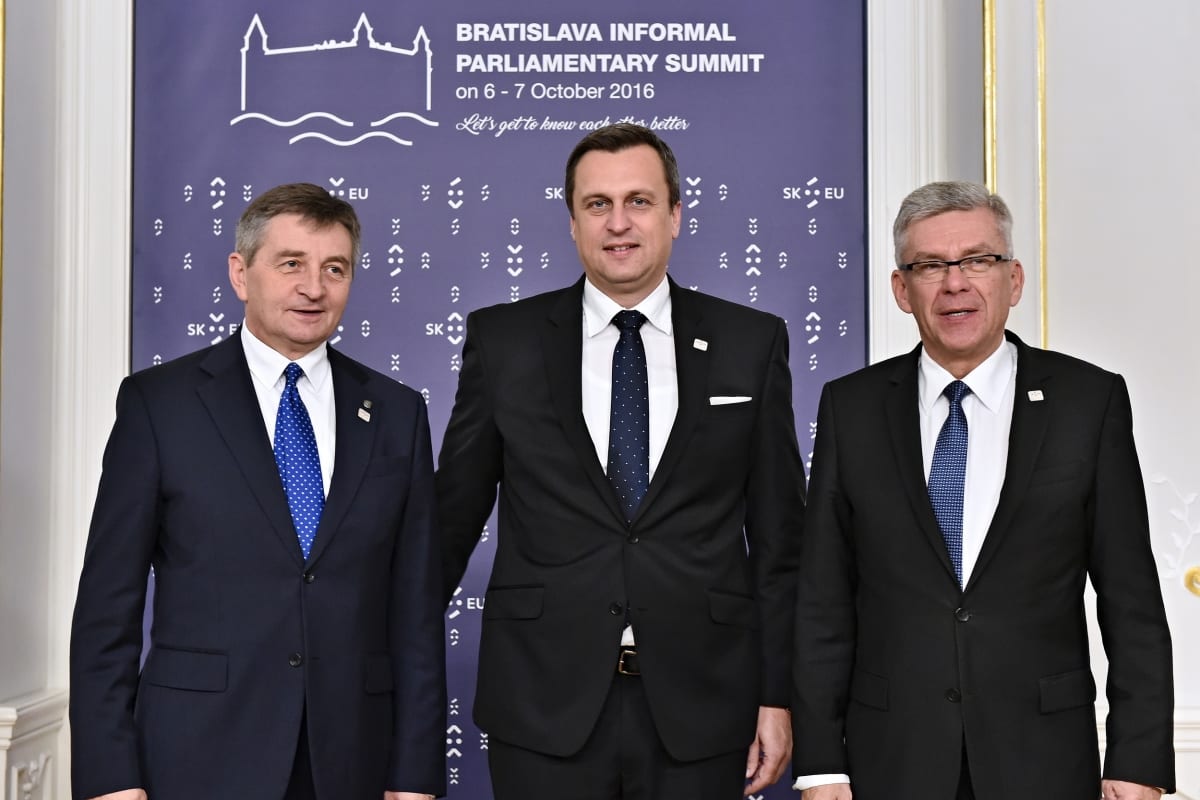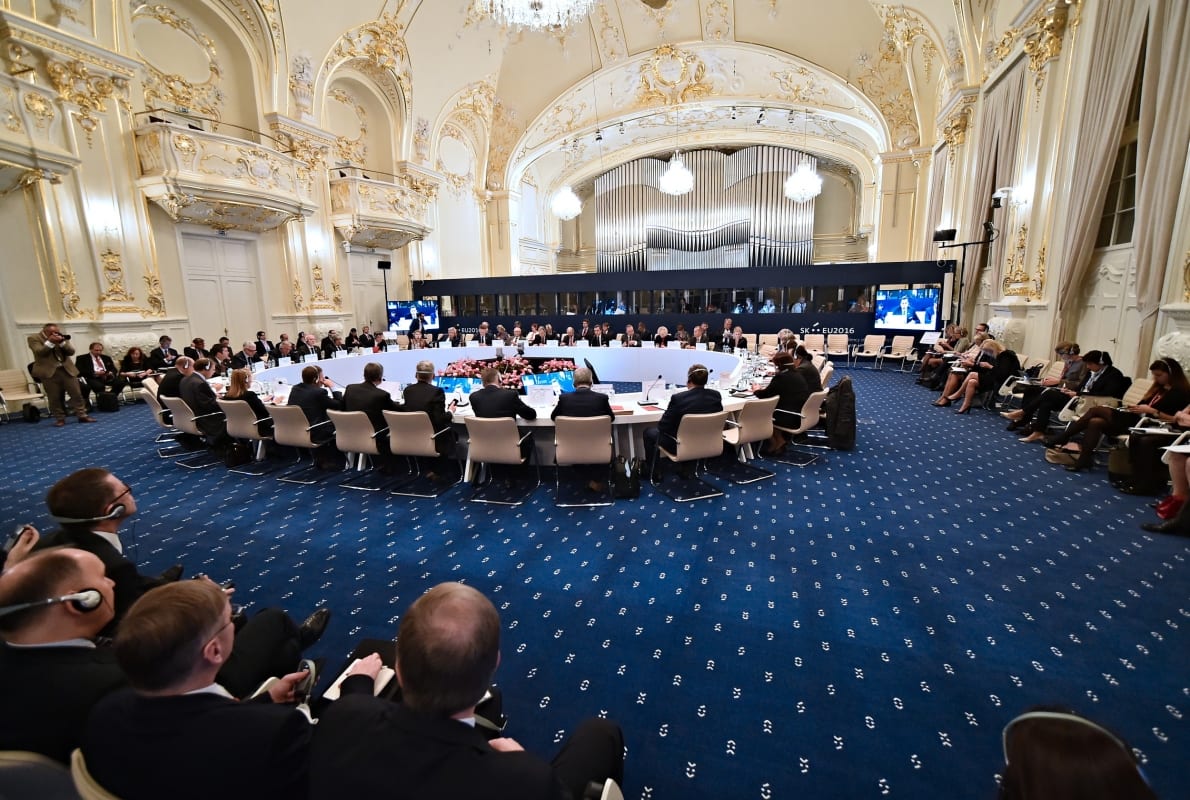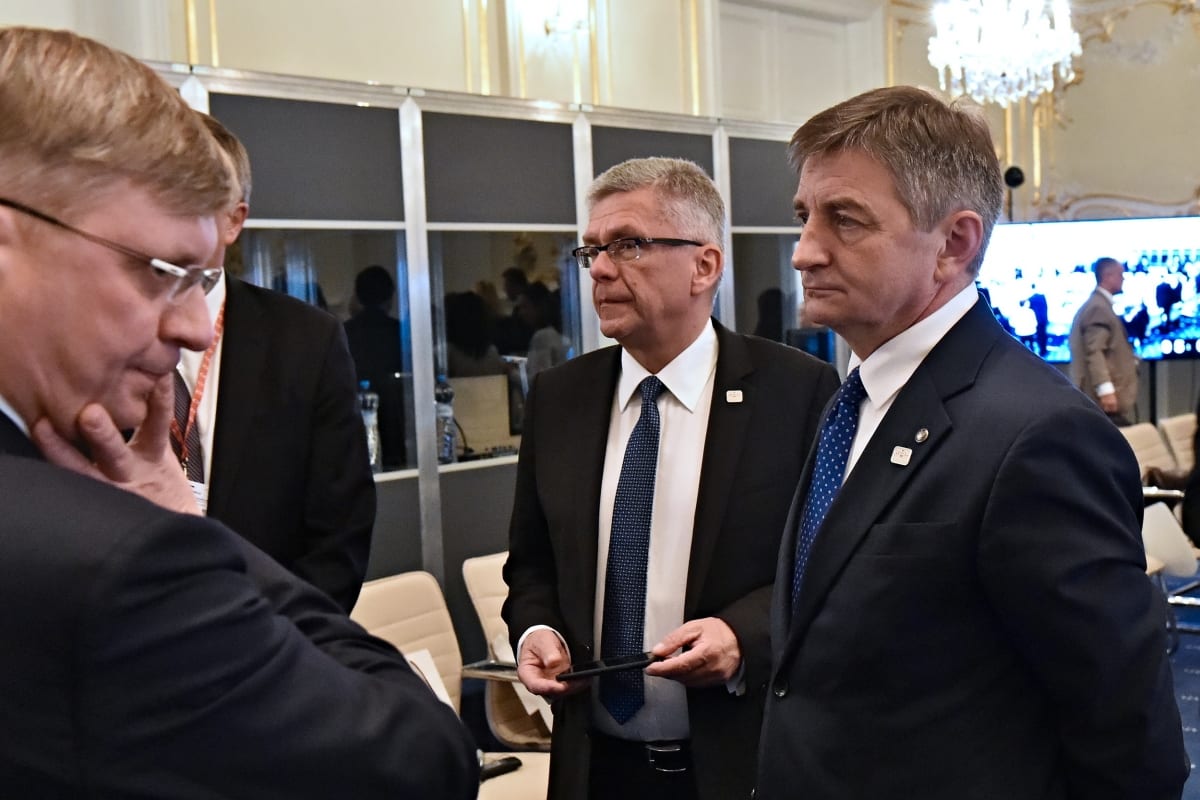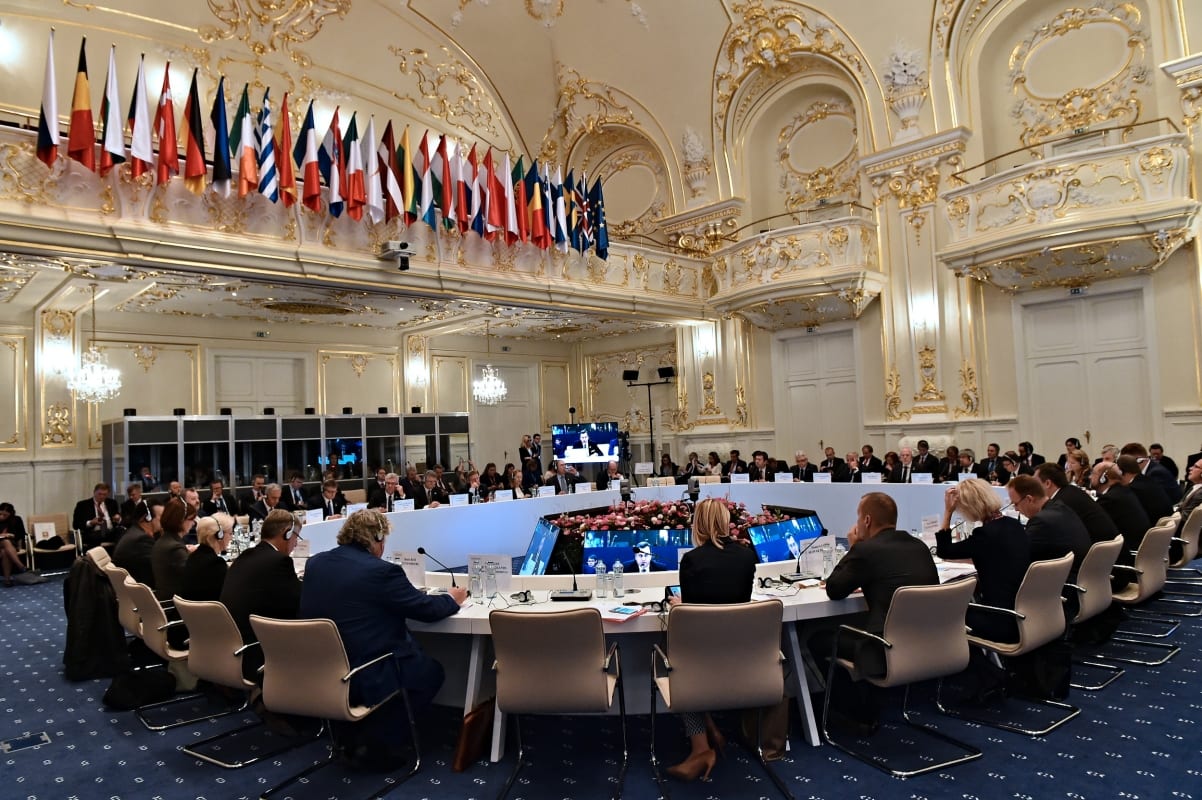The meeting was held as part of the Slovak presidency of the Council of the European Union. It was hosted by the President of the Slovak National Council Andrej Danko. The summit was organized in response to recent European developments, mainly in relation to the outcome of the British referendum on continued membership in the European Union.
The debate was divided into two separate sessions. The first part discussed current challenges: threats to European unity and closing the gap between the EU and its citizens. In the second part, the role of national parliaments and cohesion in the community were discussed. The aim of today's meeting was to create a forum for the exchange of views and opinions on current European issues, which will enable the formulation of effective conclusions for the future.
Speaker of the Sejm Marek Kuchciński took the floor during the second part of the meeting. During the Summit, he also held a number of bilateral meetings with, among others, Presidents Andrej Danko, Loreta Graužiniené, Inara Murniece and Urban Ahlin.
Speech by Speaker of the Sejm Marek Kuchciński
Informal meeting of EU Parliaments' Presidents under the Presidency of the Slovak Republic
Bratislava, October 7, 2016.
Thank you very much Mr. Chairman,
Dear Sirs,
First of all, I would like to join the voice of thanks to Mr. Chairman Adrej Danko for organizing in such a short time our meeting so that we could discuss the current issues related to the functioning of the European Union [...]
It seems to me that President Danko, in characterizing the European situation, talking about the future of Europe, put it very well in two words [...]: united in diversity. It seems to me that this is the symbol and the goal of our actions. I think there are several conditions that we should remember. One of them is to stand by the values you mentioned. For me, an example of adherence to real values, and I mean that in the full meaning of the word, is reference to solidarity between the countries of Europe and the European Union. Solidarity should be a genuine solidarity, not a false one. Values should be truly understood. An example of a false understanding of values such as solidarity is, for example, in the field of energy security, the organisation and construction of the Nord Stream pipeline [...] at the expense of the interests of Poland and, I think, many other Baltic states. We should pay attention to this.
What should we do, how should we renew Europe and the European Union, with our parliaments in mind? I would like to join [...] the voice of the President of the French Senate, who has proposed specific proposals, which would be worth considering. It would be worth setting up a special working group, for example under the current Slovak Presidency, to discuss specific proposals. I agree that extending the deadline for giving an opinion on European documents is necessary, so that our national parliaments have time to analyse EU projects and documents. It seems to me that the 12-week deadline may be too short. But anyway it basically means the need to change the European Treaty.
I think that as representatives of national parliaments, we should propose the introduction of a right of veto to specific individual projects prepared by the European Commission or the European Parliament, for example, in a situation where a quarter or a third of the Member States do not agree with a particular proposal. I believe that the 'green card' proposed by the fellow Member from France is the best possible proposal for the involvement of our national parliaments, and thus of the representatives of the nations, since each of us represents the sovereign, that is to say, our nations. In this way we are involving our nations in the work of jointly building the future of the European Union, and this may lead to an increase in interest and turnout for elections to the European Parliament, where the turnout rate reaches around 20%. This is the case in Poland, for example. The so-called green card is an example so that we can engage in the initiative of formulating our various proposals.
It seems to me that we should take another circumstance into account. We represent the European Union, there are 27 of us. With the United Kingdom, Switzerland and other cooperating countries we are more than 30 countries. But there are a dozen or so countries that are outside the European Union but are within Europe: [...] in the Balkans and in Eastern Europe. The strength of the European Union will grow and the dynamics of European integration will increase if we think openly and if we seek cooperation with all the countries of Europe. [...] a strong European Union is characterized by the strength of the whole of Europe. The whole of Europe can trust the European Union if it looks after the interests of the whole of Europe. We should also think about our eastern neighbors, about Ukraine, because there is a war going on there. A war is taking place on the borders of Schengen and the European Union. We should think about the countries of the Caucasus and the Balkans, which are waiting for the European Union and want to join it. We should think about such cooperation. This would be one of the elements of the search for an effective solution to the problems of migration.
We all agree that we need a strong and vibrant EU, and the changes which are being presented here today go in this direction - how to strengthen the European Union so that we feel more secure and so that we can involve our citizens more closely in our common concern for a common European civilisation.
Text: Chancellery of the Sejm
Photo: http://www.eu2016.sk/


